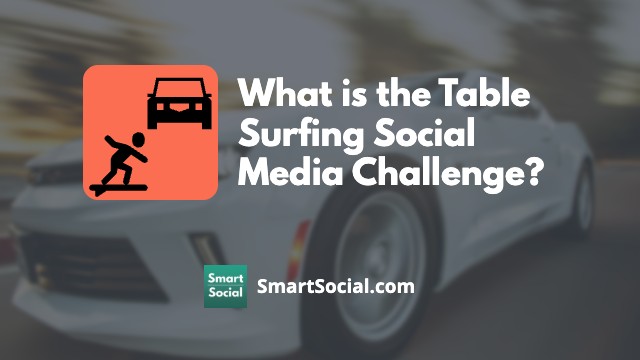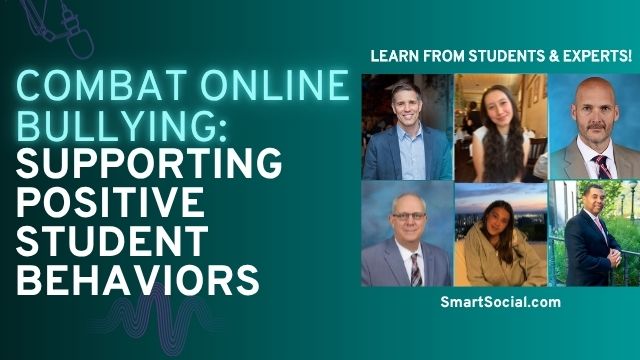Avoiding Strangers & Dangerous Situations Online
Green Zone App
(Click here to learn more)
Dangerous Social media challenge
(Click here to learn more)
Red Zone App
(Click here to learn more)
Gray Zone App
(Click here to learn more)
The internet has given teens endless opportunities to connect, but it also opens doors to serious dangers. Strangers can easily disguise themselves as friends, and before kids realize it, they may be caught in a web of emotional manipulation, exploitation, or even real-world threats. From online predators and cyberbullies to scammers and drug dealers, the risks of talking to the wrong person online are greater than most parents imagine. In this guide, we’ll break down the hidden dangers, the tactics predators use to gain trust, and the steps parents and students can take to stay safe.
Educators and parents: Guide your students' reflection and discussion with this student worksheet. (Log in to your Google account and select File-->Make a Copy)
Avoiding Strangers & Dangerous Situations: Help Your Child Stay Safe Online (Full Parent Event Replay)
What are the dangers of teens talking to strangers online?
- Emotional manipulation
- Inappropriate content/exposure
- Exploitation/blackmail (sextortion)
- Cyberbullying/harassment
- Scams/stealing
- Invites to meet in person
- Accessibility to drugs
Who is a Friend vs a Stranger? (Student & Parent Video)
7 Steps Predators Use to Reach Your Child
1. Predators impersonate someone else (they lie about who they are online)
- Use fake profiles, often posing as another child, teen, or someone trustworthy
- Steal photos from real users to make their profile look legitimate
- Claim to have mutual friends or shared interests to appear relatable
- May use AI-generated images or deepfake technology to appear real
"I'm [Name] from your school. And we have a lot of friends in common.”
2. They try to build trust (compliments, emotional connections, shared interests)
- Flirt or flatter the child with excessive compliments to make them feel special
- Mirror the child’s interests (e.g., gaming, music, sports) to form a connection
- Use an emotional hook or ask about feelings and personal struggles to position themselves as a confidant
- Make the child feel understood and validated, sometimes better than real-life friends
3. They create secrecy (including privacy and isolation)
- Encourage private conversations away from public forums (e.g., direct messages, encrypted apps)
- Tell the child, "No one else will understand us," or "This is just between us"
- Introduce the idea that parents and other adults "wouldn’t get it" or might overreact
- Gradually discourage talking to others about their conversations
"Let's keep this conversation just between us. Go create a new username or account on _____ app so we can chat there."
4. They build a deeper connection (emotional manipulation)
- Act as a mentor, protector, or "best friend" to the child
- Share personal stories (often fake) to build emotional attachment
- Offer gifts, gaming credits, or financial support to gain favor
- Create a dependency where the child feels the need to check in with them
5. They phish for personal information (gathering personal details)
- Ask innocent-sounding questions about where your child lives, what school they attend, or their routines
- Slowly gather small details over time to piece together real-life information
- Encourage the child to share photos or videos under harmless pretenses
- May ask for a secret phone number or alternative way to communicate outside the app
6. They flip to get what they want (manipulation, threats, blackmail, exploitation)
- Begin requesting explicit photos, videos, or personal favors
- Use emotional pressure ("If you really cared about me, you'd do this.")
- Threaten to expose private conversations, photos, or past mistakes if the child resists
- Push for an in-person meeting or they escalate to coercion and blackmail
7. They use shame to keep control (trap your child in fear)
- Make the child feel guilty for what they’ve shared or done
- Tell them they will be in serious trouble if their parents find out
- Insist that no one will believe them or that they will be judged
- Keep them trapped in fear, ensuring silence while continuing to manipulate them
- They ask for the child to pay them money to make the threats stop
Online Predators' Tactics (Parent Video)
How students can protect themselves from predators
- Guard Your Privacy: Your personal information is yours; keep it that way
- Friend Requests Matter: Know who's adding you; not all connections are real
- Screenshots for Safety: Snap proof if someone's crossing boundaries; share with a trusted adult
- Block and Report: Don't hold back; use 'block' and 'report' when needed
- Spot Red Flags: Trust your instincts; and stay skeptical online of anything that seems too good to be true
Dialogue starters for your family
- “Have you ever gotten a message from someone you don’t know online? How did you handle it?”
- “If someone online says they are your age and likes all the same things as you, do you think that always means they’re telling the truth?”
- “What is the difference between an online friend vs a real-life friend?”
- “If someone online asked you to keep a conversation secret from me, what do you think their reason might be?”
- “Have you or a friend ever encountered someone online who made you feel uncomfortable or unsafe? If so, what did you or they do?”
- “What would you do if someone online started asking you personal questions, like what school you go to or if you’re home alone?”
- “Is there another adult you could go to and talk with if for any reason if you didn’t feel comfortable coming to me?”
Dangerous social media challenges
Dangerous social media challenges may seem fun or harmelss for students, but many can be dangerous–encouraging risky behavior, peer pressure, legal issues and even life-threatening actions. Read Social Media Challenges: What Students, Parents & Educators Need to Know for more information.
A few popular challenges include:
What you need to know about Fentanyl
- Fentanyl is a potent synthetic opioid drug used for pain relief by doctors but it is only safe when used under a doctor’s care
- Fentanyl is 50 times more potent than heroin
- People who create fake pills sometimes use fentanyl as a filler which are often sold on Snapchat and other apps
- It takes very little fentanyl to produce a “high” so drug dealers can use less of the other drugs in their pills, making it cheaper to produce
- Six out of every ten pills with fentanyl contain a potentially lethal dose (Source: DEA.gov)
- That means that any pill that doesn’t come directly from a pharmacy could kill you
Can you tell fake pills apart from real pills?
- Fake pills often contain fentanyl and it’s impossible to spot the differences between deadly fake pills and real pills
- The drug dealers can make the fake pills look exactly like real pills

How deadly is fentanyl?

- A minuscule amount of fentanyl - merely 2 milligrams, which is roughly equivalent to a few grains of salt - could potentially be lethal
- Many students think they can just break a pill in half, but fake pills may not be mixed evenly, so one fraction of a pill could be deadly
- Look at this image of the penny. That is a lethal dose of fentanyl
What drug dealers don’t want you to know
- Only an adult can get real medication from a real pharmacist or doctor at a pharmacy or doctor's office
- Most sellers can’t guarantee that the pills are fentanyl free
- They may claim that their pills are “clean” but that is often a lie
- It’s illegal to buy any pills without a prescription from a real doctor
- It’s also illegal to possess any pills that aren’t prescribed to you with your name on the bottle
- Every state is different: In California, here’s the law:
- Unlawful possession of prescription drugs falls under “unlawful possession of a controlled substance” in California law, which is a misdemeanor punishable by up to a year in county jail and a fine of up to $1,000
Protecting students from drugs online

- Even if you are getting drugs from a close friend they may not know where those drugs came from
- Percocet, Oxycodone, Xanax, and Adderall are commonly sold online, often using emojis or coded names
- Any of these drugs can be fake pills and contain fentanyl
- Social media is often used to advertise and sell drugs
- If you have a smartphone and/or a social media account then a drug trafficker can find you
Just One Pill Can Kill (Video)
More resources for Parents, Students, & Educators
- Drugs on Social Media: What Parents & Educators Need to Look Out For
- What is the Chroming Challenge: Understanding the Perils of Inhaling Toxic Chemicals
- TikTok Tranquilizer Challenge: What Parents & Educators Need to Know
- What Parents Need to Know About Vaping
Conclusion
The risks of teens talking to strangers online are real, but with the right knowledge and guidance, families can take steps to stay safe. By understanding how predators operate, recognizing red flags, and fostering open discussions at home, parents can empower their children to make smart choices online. Encourage your teen to think critically about who they interact with, trust their instincts, and reach out for help if something feels off. The internet isn’t going away—but with awareness and clear communication, we can help protect our kids from its hidden dangers.
Protect your family and enter for a chance to win cool prizes
Become a member or log in to learn more on this topic
Protect your family and enter for a chance to win cool prizes

., start learning from this page to earn points!*
Hello, I'm Josh, the founder of SmartSocial.com.
Don't leave this page until you fill out our feedback form that will appear after you learn from the resources...
Become a Very Informed Parent (VIP) to get our social media suggestions in your email every Tuesday & Thursday.



Hello, I'm Josh, the founder of SmartSocial.com. Protect your family by taking my 1 minute quiz
This quiz will help you understand how safe your family is


Schools & Districts: Partner with us to protect your community online
Our remote presentations (and website) teach over a million parents and students each year how to be safe so they can shine online. We teach students how their accounts can be used to create a portfolio of positive accomplishments that impress colleges and employers.


Join Our Smart Social Podcast
each week on iTunes
With over 500 episodes, Josh Ochs interviews psychologists, therapists, counselors, teachers, and parents while showing you how to navigate social media to someday shine online.
Listen on:




.jpg)



.jpg)
.jpg)
.jpg)


